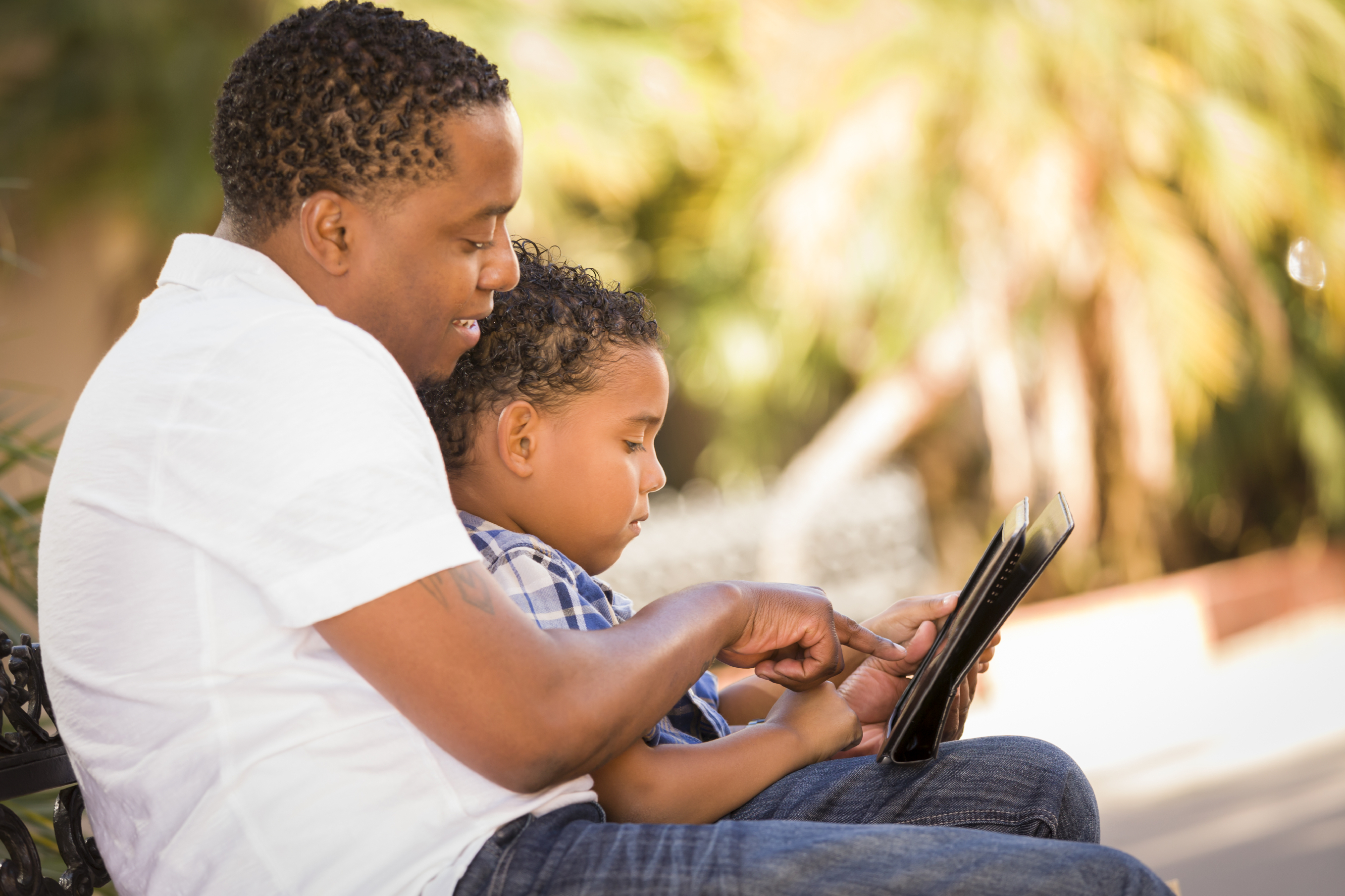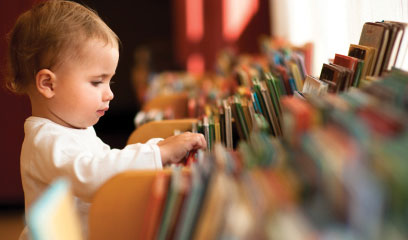
Most parents know the importance of reading to their children. Building a collection of baby books is one activity many parents enjoy doing when they first learn they are expecting. My 1-year-old son already has a large collection of books. From classics like Corduroy to bilingual books like La Oruga Muy Hambrienta / The Very Hungry Caterpillar.
The significance of reading to kids, especially infants, was underscored recently when the American Academy of Pediatrics (AAP) released a new policy statement recommending pediatric providers promote reading to children from infancy until at least kindergarten. The policy advises that parents should be encouraged to read aloud to their young children as it can enhance parent-child relationships and help kids learn language and early literacy skills. Surprisingly, given the popularity of e-readers and books on tablets like iPads, the policy does not discuss whether or not it is helpful or harmful to read to young children on electronic devices.
Parents are often told to regulate their children’s exposure to screen time when it comes to playing video games or watching television. But do the recommendations surrounding screen time apply when parents are reading to their children from an electronic device? While I am a gadget lover and keep up to date on the latest technology trends, I prefer to read from printed books. However, we have multiple iPads in our home and my husband loves reading from his Kindle. Our son has started to experience the joys of reading the old school way and the high-tech way, so I was interested in understanding whether this could be a positive or negative experience for him.
According to Dr. Danette Glassy, a pediatrician in Mercer Island and co-chair of the AAP’s Council on Early Childhood, “Electronic devices get a bad rap because they can also be used as ‘automatons’ or parent/caregiver substitutes.” She notes that when electronic devices are used to “babysit” kids and they are passively viewing electronic media, it can negatively affect language development, especially for kids under the age of 2.
However, Dr. Glassy emphasizes that if parents use electronic devices for reading to their kids in an active manner, it can have the same positive effects as reading from a paper book. The key to making it an effective learning experience is to interact with your children — point at photos, ask them questions, respond to their reactions — whether you’re reading from a printed book or an electronic device.
Here are some additional, traditional reading tips for parents from Reading is Fundamental, many of which can be applied to both printed books and e-readers:
- Read aloud to your child everyday. Read to babies even before they can talk. Let your child see and touch the book. Play with voices and the sounds of words.
- Create a print-rich home environment. Have a wide variety of books available to children. Encourage children to look at books on their own. Set aside a family reading area and a family reading time.
- Model reading and writing. Make use of the family reading area on your own. Let children see you reading for work or to learn something. Let children see you reading for pleasure.
- Use grocery shopping to encourage reading. Have children help you search for specific brands. Use the aisle markers with your child to find items. Match coupons to products.
- Cook with your child to develop literacy. Show your child how to read a recipe. Read the labels on ingredients together. Make a family cookbook of favorite recipes.
- Explore books together. As you read, point out important features about the book. Ask your child questions. Point out new words.
- Tell stories together. Talk together about your family history. Look at old vacation photos and discuss your memories of the trip. Tape your storytelling.
- Sing and rhyme with your child. Choose songs with rhymes and word play. Play rhyming games. Challenge your child to sing or say rhymes as fast as he can.
- Write with your child. Provide lots of writing materials. Encourage your child to draw and write on her own. Encourage your child to write thank you notes to grandparents.
- Visit the library often. Make weekly trips. Encourage your child to get her own library card. Take advantage of library programs such as read alouds and family book clubs.
“Whether you read to your baby or young child from a board book, a cloth book, a magazine, a Kindle or other e-reader, it does not matter,” said Dr. Glassy.
Bottom line: Reading is an important developmental activity for young children. Regardless of the medium used, parents should participate in interactive, responsive reading with their kids every day.











